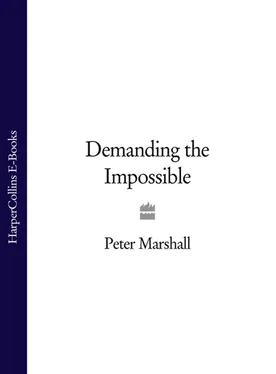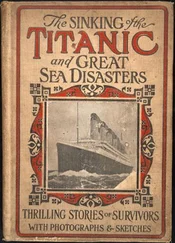For all its shortcomings, the libertarian legacy of Greek philosophy and Athenian democracy remains impressive and should not be overshadowed by the dominating presence of Plato and Aristotle. The right to private judgement and the freedom of thought and action were first defended by the Greeks. They not only made the fundamental distinction between nature and convention which runs like a silver thread through all anarchist thinking, but developed a strong sense of the common destiny of all humanity to live a life of virtue. They recognized that justice was a universal principle. They loved laughter and friendship and all that is human. Above all, they saw in education the means to awaken the understanding which alone can bring humanity to personal and social freedom.
AT FIRST SIGHT, IT may seem strange to link Christianity with anarchism. Many of the classic thinkers, imbued with the scientific spirit of the nineteenth century, were atheists or agnostics. Like the philosophes of the Enlightenment, they tended to dismiss organized Christianity as part of the superstition and ignorance of the Middle Ages. They saw the Church aligned with the State, and the priest anointing the warrior and the king. For the most part, they thought Christianity taught a slavish morality with its stress on humility, piety, submission. The traditional image of God as an authoritarian father-figure was anathema to them, and they felt no need for a supernatural authority to bolster temporal authority.
There is of course some basis for these views in the theory and practice of Christianity. Genesis asserts that man is created from the dust of the earth and given special authority over the rest of creation: ‘Let us make man in our image, after our likeness: and let them have dominion over the fish of the sea, and the fowl of the air, and over the cattle, and over all the earth … Be fruitful, and multiply, and replenish the earth, and subdue it.’ (Genesis 1: 26–8)
In the Garden of Eden, there was no mine or thine; all things were enjoyed in common. But disobedience, according to Genesis, was man’s first sin. Having rebelled against the authority of God and eaten of the tree of knowledge of good and evil, humanity was banished from the Garden and condemned to a life of pain, toil and mortality. The whole of nature became corrupted.
Since man was a fallen and depraved creature it followed for many that he needed powerful rulers to curb his wayward behaviour. The Fall thus made law necessary for deceitful and weak Man required the restraint of positive law. ‘Wherefore then serveth the law?’ St Paul asked rhetorically. ‘It was added because of transgression.’(Galatians 3: 19) As Christianity developed, there was a growing stress amongst certain theologians on the nothingness of sinful man and the omnipotence of God, a trend which culminated in Calvin who argued that the worst tyrant was better than the absence of civil power or anarchy.
Most European anarchists have followed Proudhon, Stirner and Bakunin in their rejection of Christianity. They are opposed to all forms of imposed authority, religious as well as political, and have been profoundly perturbed by the close historical link between Church and State. But this does not mean that they have all been atheists. Anarchism is not necessarily atheistic any more than socialism is. Indeed, the relationship between anarchism and religion is intricate and in many ways the appeal of anarchism lies precisely in the way it manages to combine religious fervour with philosophical rigour.
The legacy of Christianity is not moreover merely repressive. On the one hand, there is a conservative, quietist and authoritarian tendency originating in the Pauline Church in Rome; on the other, a radical, communal and libertarian one which emerged from the Jamesian church in Jerusalem. 1 Many anarchists have belonged to the latter trend. Tolstoy is the most famous, but not the only one to base his anarchism on a radical interpretation of Christianity. Indeed, Jacques Ellul has recently argued that ‘biblical thought leads directly to anarchism, and that this is the only “political anti-political” position in accord with Christian thinking’. 2
The teaching of the Old Testament about political power is that its use is invariably harmful. The Chronicles’ account of the kings in Israel and Judaea shows that their rule was systematically bad. Daniel, for instance, who refused to bow to the king, was thrown into the lion’s pit. There would seem to be little validation for political power in the Old Testament.
In the New Testament, we find Paul’s dictum: ‘there is no authority except God.’(Romans 13: 1) While from Constantine onwards this has been appealed to by the Church to justify the theology of the State, the Gospels and Revelation are consistently opposed to authority. Jesus’s attitude is radically negative. He counsels his disciples not to imitate the kings of nations: ‘kings and governors have dominion over men; let there be none like that among you.’ In fact, Jesus consistently held political authority up to derision. When, for instance, he said ‘Render unto Caesar’, he did not necessarily mean, as it is usually understand, that subjects should obey their governors. The advice was made in relationship to taxes. Since Caesar, having created money, is its master, Jesus was in all probability implying that a Christian cannot serve Mammon and God at the same time.
Alongside the libertarian trend in Christianity has been a communal one. Jesus’ voluntary poverty, his attack on riches (it is more difficult for a rich man to go to heaven than to pass through ‘the eye of a needle’), and his sharing of goods (particularly bread and fishes) all inspired many early Christians to practise a form of communism. The communal life of the early Christian Church endured throughout the ministry of Paul. 3
These early Christian communists probably had connections with the Essenes, a Jewish sect who practised the community of goods and brotherly love. Wishing to release the soul from the prison-house of the flesh, they were ascetic but did not withdraw from the world. They despised marriage and the ‘lasciviousness’ of women but looked after the children of others. They cannot however be considered forerunners of anarchism for they kept strict religious observances and regarded themselves as a moral elite. 4
There are solid grounds for believing that the first Christian believers practised a form of communism and usufruct. The account in Acts is explicit: ‘And all that believed were together, and had all things common; And sold their possession and goods, and parted them to all men , as every man had need.’(Acts 2: 44–5) Again Acts records: ‘And the multitude of them that believed were of one heart and of one soul: neither said any of them that ought of the things which he possessed was his own; but they had all things common.’(Acts 4: 32) The early Christian fathers were clear on the matter too. Ambrose in the fourth century asserted in no uncertain terms: ‘Nature has poured forth all things for all men for common use … Nature therefore has produced a common right for all, but greed has made it a right for a few.’ He anticipated Kropotkin by concluding ‘in accordance with the will of God and the union of nature, we ought to be of mutual help one to the other’. 5
In the thirteenth century Thomas Aquinas summed up the principal teaching of the Christian fathers, attempting to combine the Christian and Greek traditions of thought in a new way. He recognized the right to property for personal ‘use’, but believed that any superfluity should be distributed to others who are in need. The right to property is therefore strictly speaking a right of administration or stewardship. The possessor of wealth is an administrator who should distribute it according to his judgement for the good of humanity. Possessions are not merely private property for personal enjoyment: ‘Quantum ad hoc non debet homo habere res exteriores ut propias, sed ut communes.’ The holder of wealth therefore has a continual duty to practise almsgiving according to his individual conscience. Wealth is held in trust for the public good. Property is not an indefeasible right: where death threatens or there is no other source of sustenance, it is permissible to take what is necessary for others. Such an act cannot be considered robbery or theft. It is a view that was to be later adopted by the father of anarchism, William Godwin.
Читать дальше












